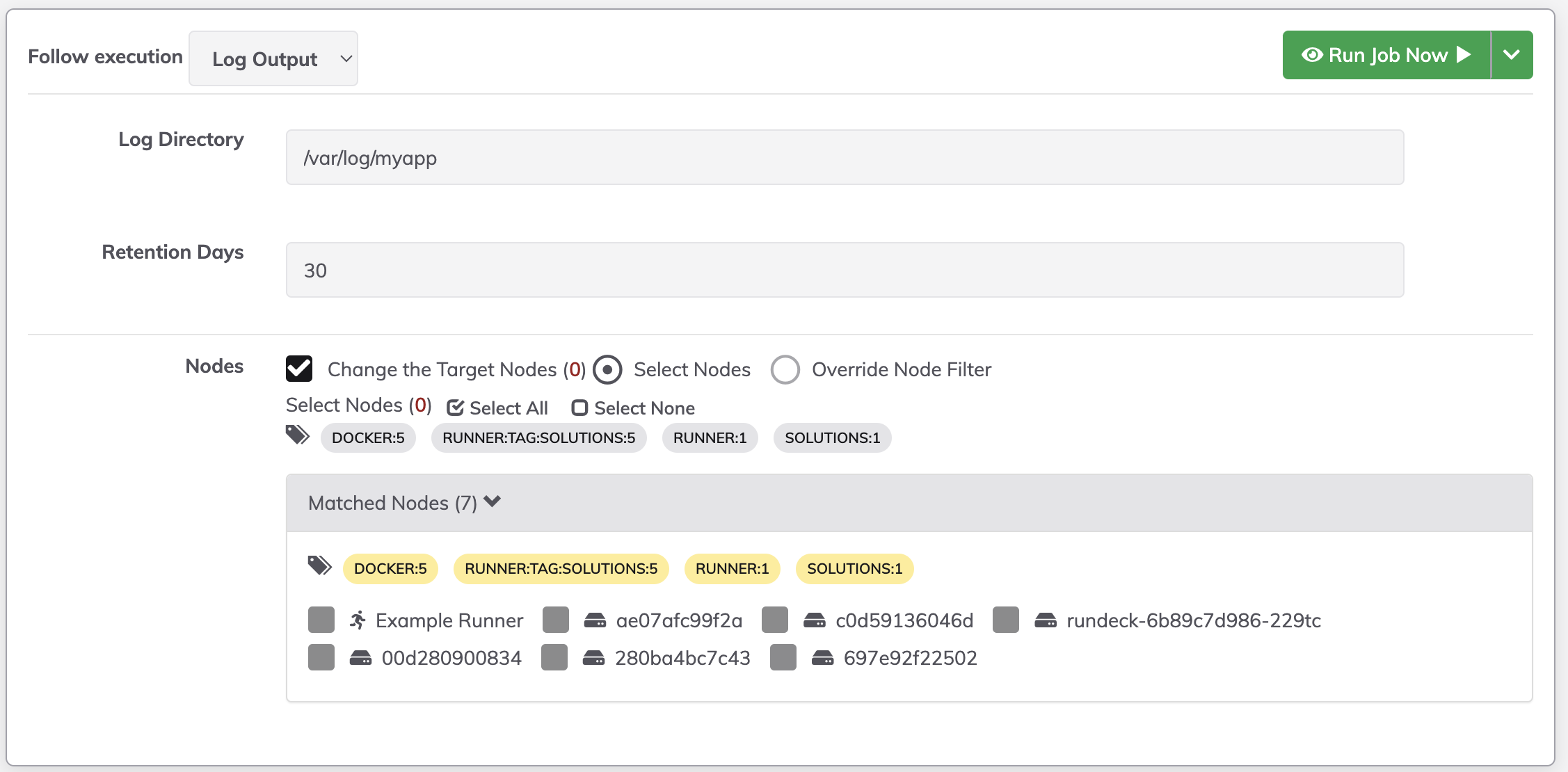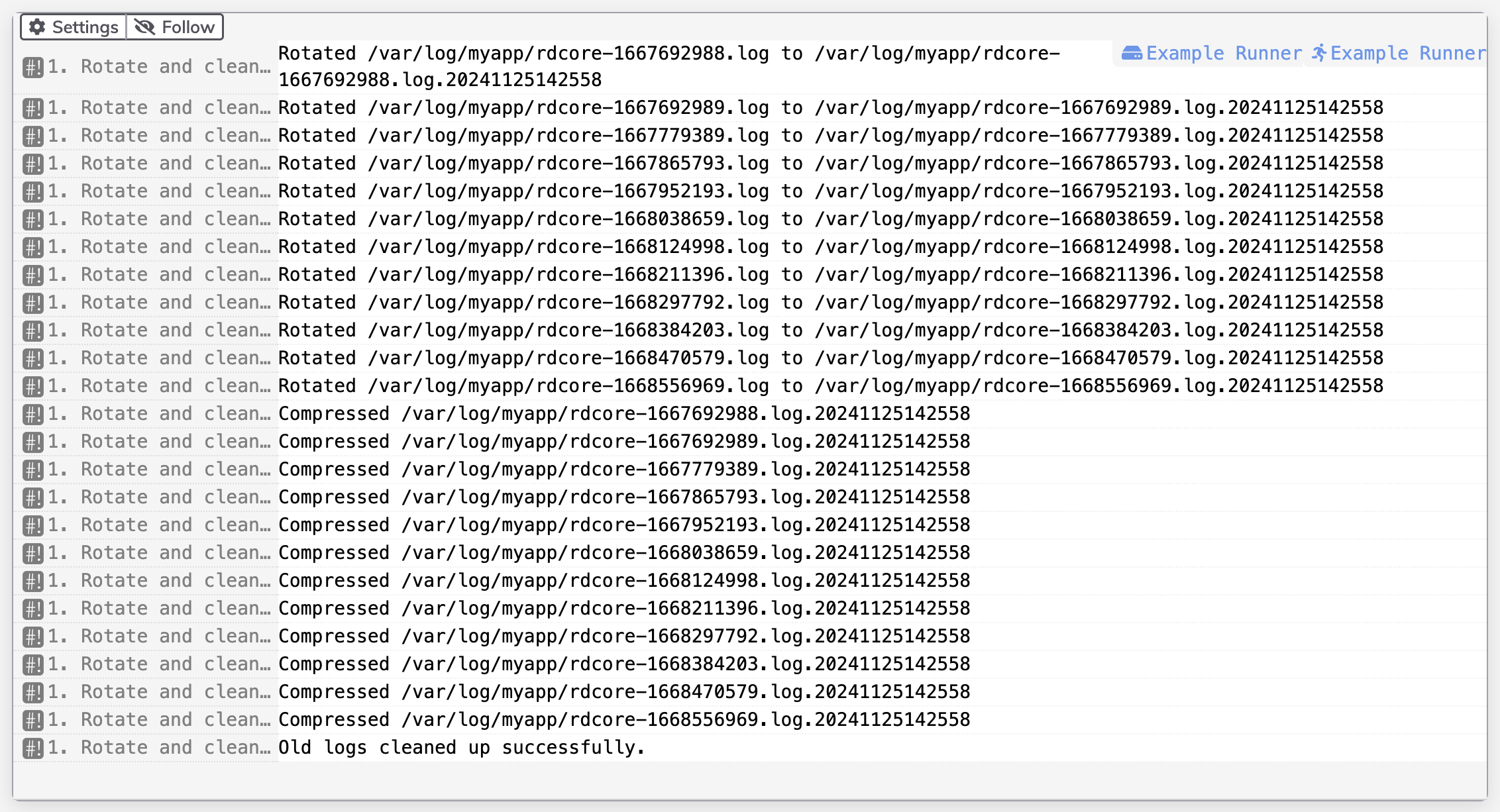Log Rotation and Cleanup
Log Rotation and Cleanup
This documentation provides details on how to use a Rundeck job to manually rotate, compress, and clean up log files in a specified directory. This job is useful for managing log files to prevent them from consuming excessive disk space.
Note
This is just one example of how to implement a log rotation job. Other opportunities exist leveraging logrotate or other methods.
Job Description
This job will:
- Rotate log files by renaming them with a timestamp.
- Compress the rotated log files to save disk space.
- Delete old log files that exceed a specified retention period.
Assumptions
- The job assumes the node is a Linux endpoint with
bashandgzipinstalled. - The default log directory is
/var/log/myapp, and should be customized.
Notes
- No nodes are selected by default. Change Target Nodes and select the endpoint to run against. If multiple nodes are selected the same script will be run on each node.
Configuration
Job Options
- Log Directory: The path where the log files are located. The default is
/var/log/myapp. - Retention Days: The number of days to retain old log files. The default is
30days.

Successful Execution
Upon successful execution, the job will:
- Rename current log files by appending a timestamp.
- Compress the renamed log files.
- Remove compressed log files older than the specified retention period.

Troubleshooting
- Log Rotation Issues: Ensure the log directory and file permissions are correctly set.
- Compression Issues: Verify that
gzipis installed and accessible on the system. - Cleanup Issues: Check the retention period and ensure the
findcommand syntax is correct.
Conclusion
This custom log rotation and cleanup job helps manage log files efficiently by rotating, compressing, and deleting old logs. Adjust the script and configuration parameters as needed to fit your specific requirements.
